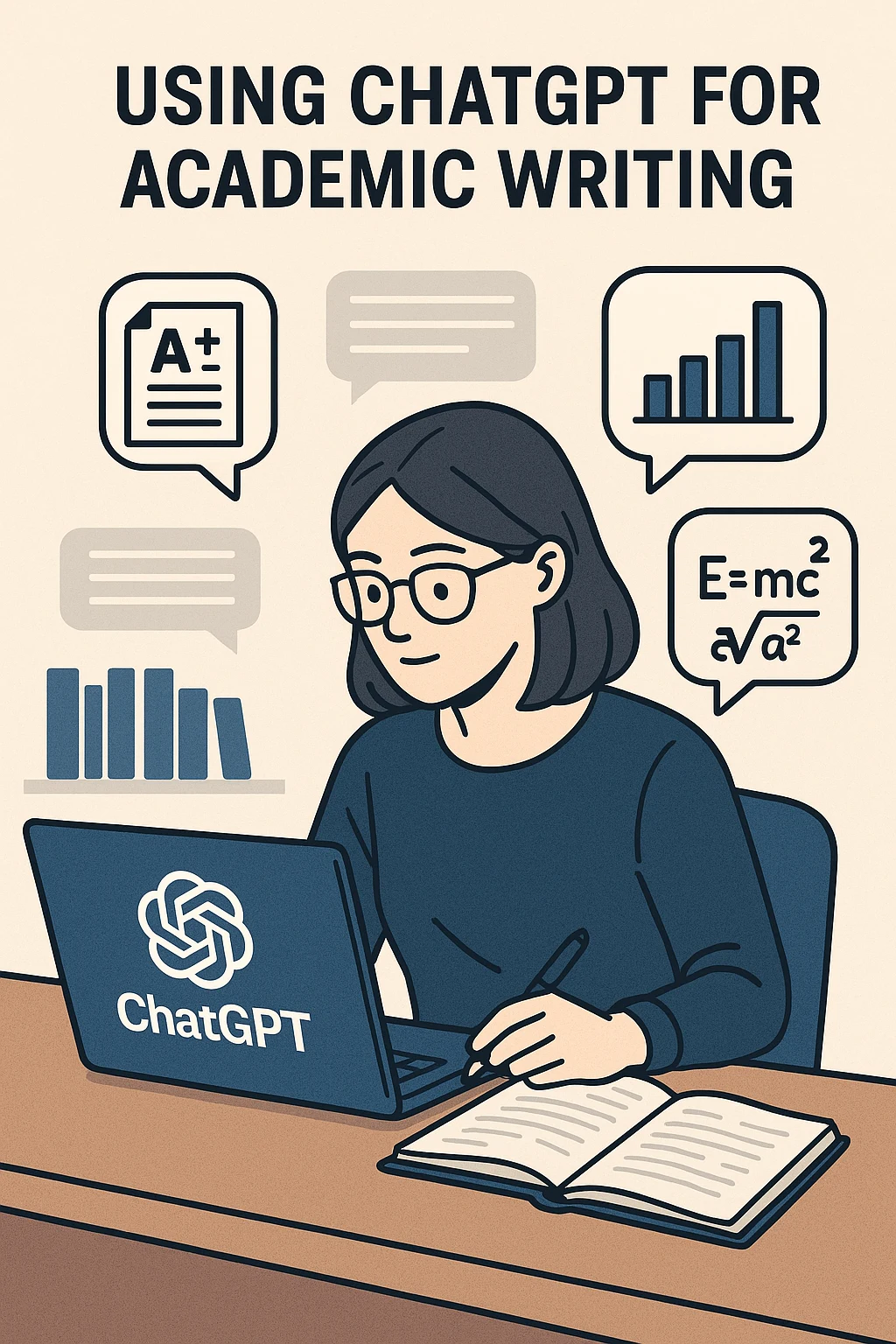Using ChatGPT for academic writing can significantly enhance your productivity, clarity, and research quality—when used ethically and wisely. Here’s a breakdown of how to use ChatGPT effectively at each stage of academic writing:
1. Understanding and Planning
- Topic Exploration: Ask ChatGPT to explain complex topics or summarize current research trends.
- Example: “Explain the current state of research in deepfake detection.”
- Brainstorming Research Questions: Generate ideas based on your area of interest.
- Example: “Suggest 5 research questions related to renewable energy adoption in rural India.”
- Outlining: Get help structuring your paper logically.
- Example: “Create an outline for a literature review on transfer learning in medical imaging.”
2. Literature Review Assistance
- Summarizing Papers: Provide abstracts or full sections and ask for summaries.
- Example: “Summarize this abstract in simple terms.”
- Synthesizing Research: Combine insights from multiple studies into coherent themes.
- Example: “Compare the findings of these three studies on AI in education.”
- Keyword Suggestions: Improve literature searches.
- Example: “What are some keywords related to smart farming and machine learning?”
3. Writing Support
- Drafting Sections: Generate or refine parts like the introduction, discussion, or conclusion.
- Example: “Write a draft introduction for a paper on indigenous agriculture and climate change.”
- Rephrasing and Clarity: Improve awkward or unclear sentences.
- Example: “Make this sentence more academic: ‘AI is changing everything in education.’”
- Grammar and Style: Polish your writing to match formal academic tone.
4. Technical Tasks
- Equation Formatting: Convert equations into LaTeX.
- Coding Help: Get assistance with Python, R, or MATLAB code for data analysis or simulations.
5. Citations and References
- Citation Formatting: Generate APA, MLA, or IEEE-style references.
- Bibliography Organization: Help manage and summarize a list of sources.
- Warning: Do not trust fabricated references. Always verify citations yourself.
6. Review and Feedback
- Peer Review Simulation: Ask ChatGPT to critique your draft like a peer reviewer.
- Example: “Critique this abstract like a journal reviewer.”
- Plagiarism Checks: ChatGPT doesn’t directly detect plagiarism but can help rephrase and make writing more original.
Ethical Guidelines
- Always disclose AI assistance if required by your institution or journal.
- Use ChatGPT as a tool, not a co-author or ghostwriter.
- Verify all facts, especially references and data.
- Maintain academic integrity by contributing your own critical thinking and originality.

Leave a Reply